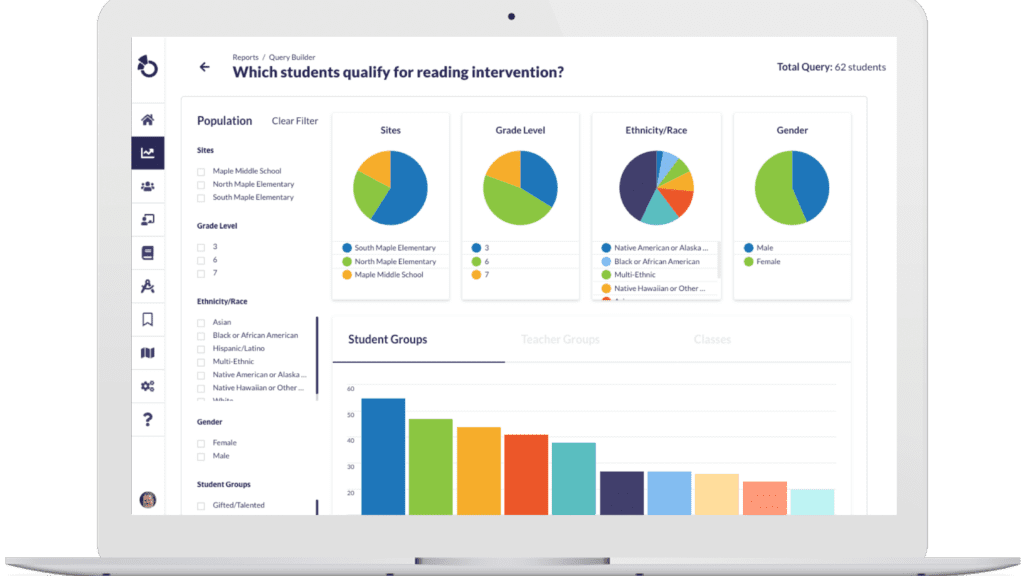Interview with Matt Olson, Assistant Superintendent at NWES
A Conversation From Our Regional Workshop
This interview took place at the 2022 Northwest Educational Services Otus Workshop. As part of this time of learning and collaboration, we were able to sit down with Matt Olson, the Assistant Superintendent at NES. Enjoy this wide-ranging discussion on how NES has utilized Otus and what lies ahead for this exciting partnership.
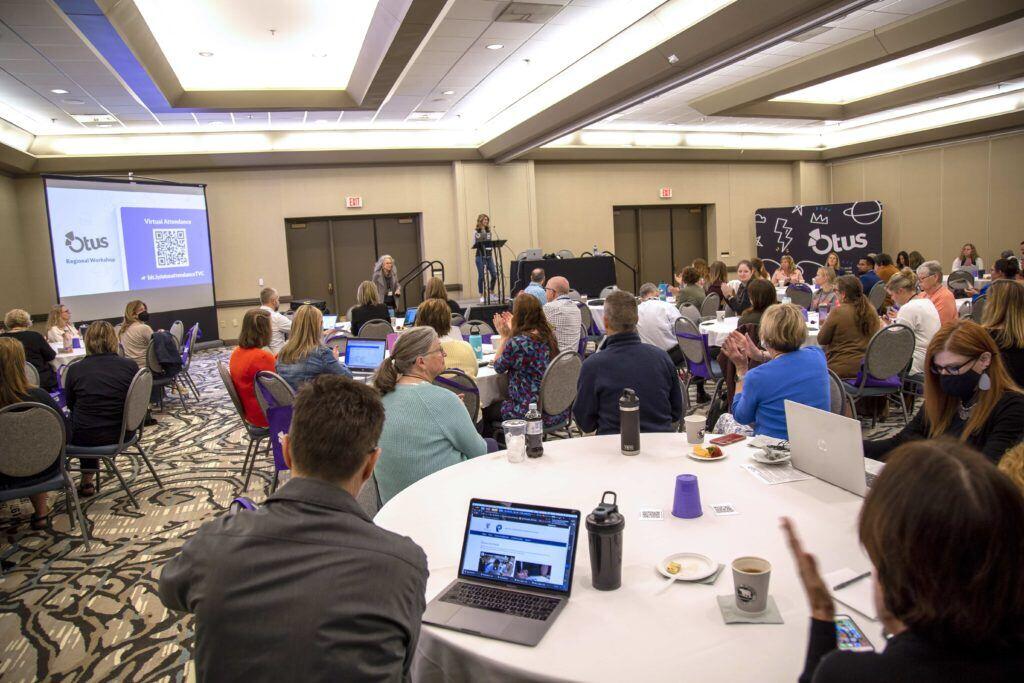
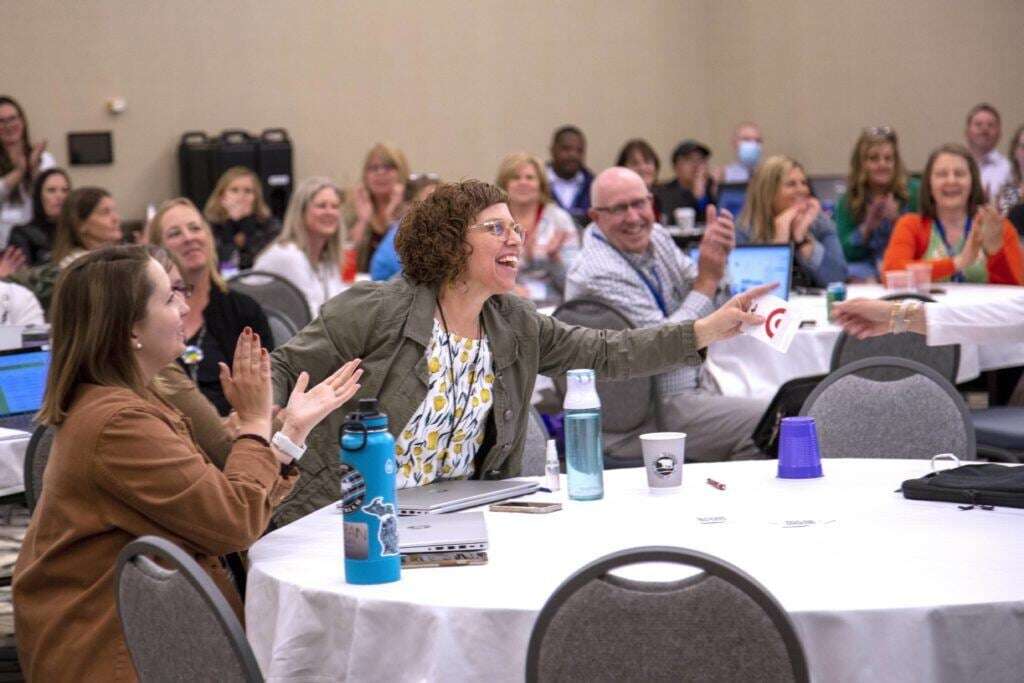
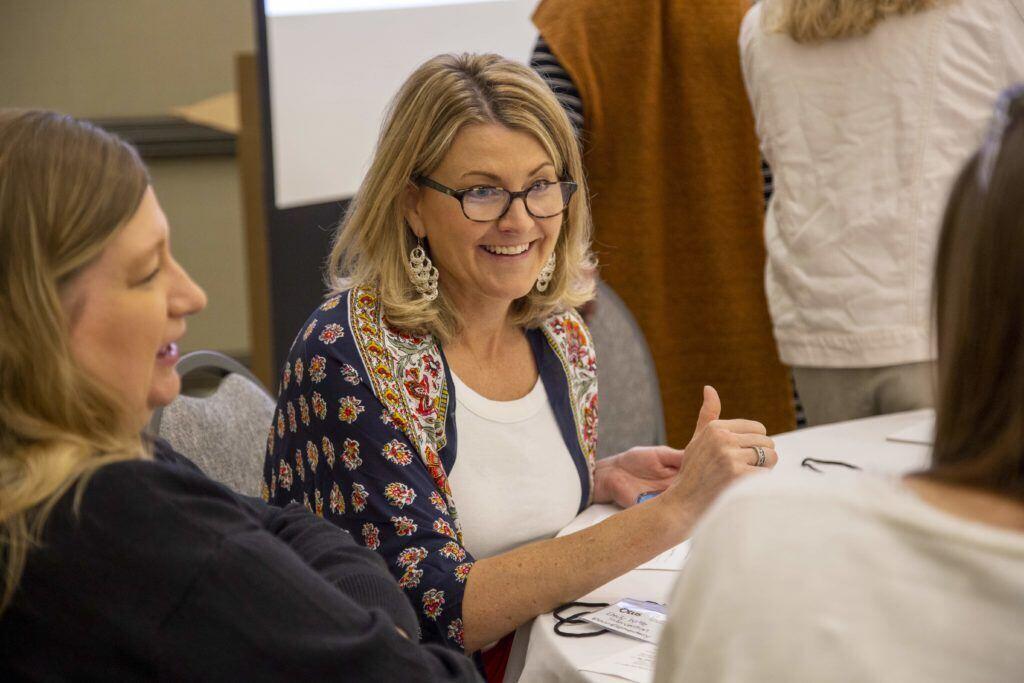
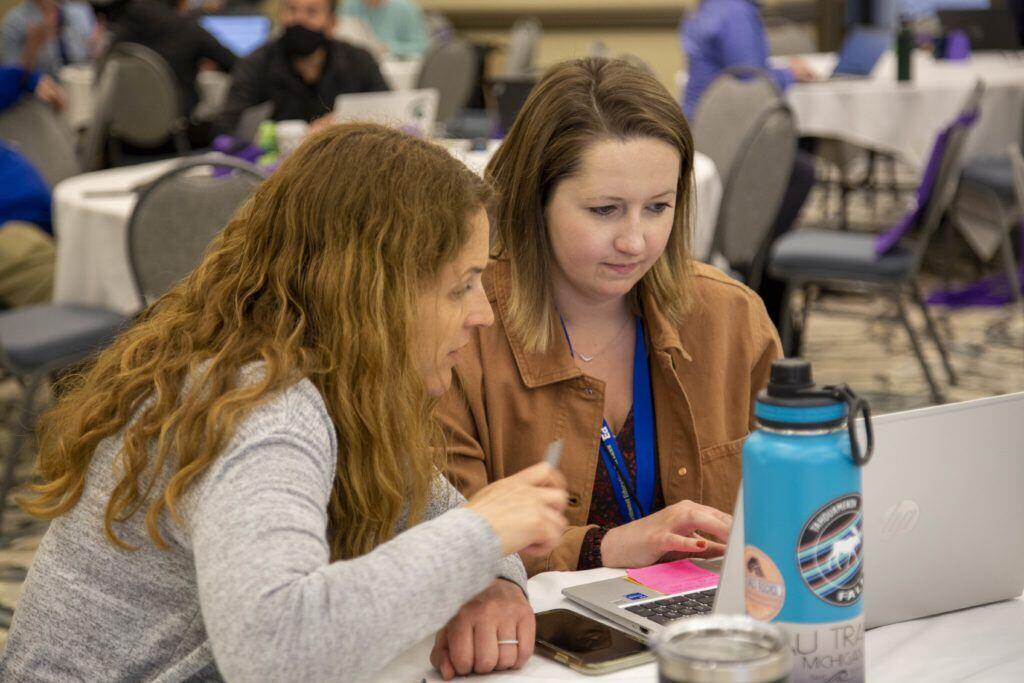
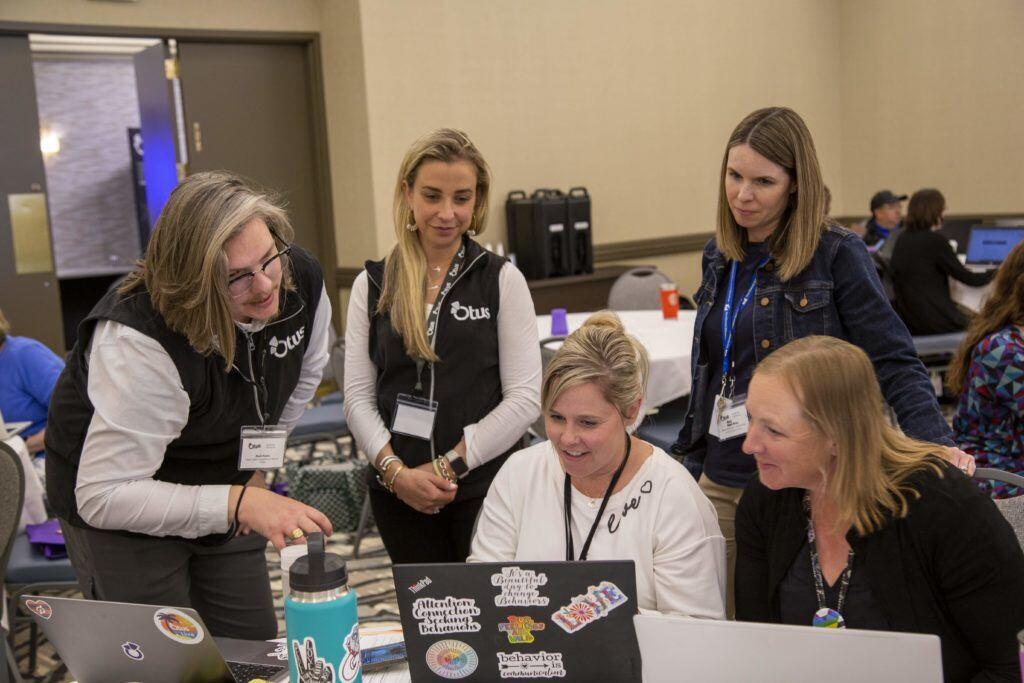
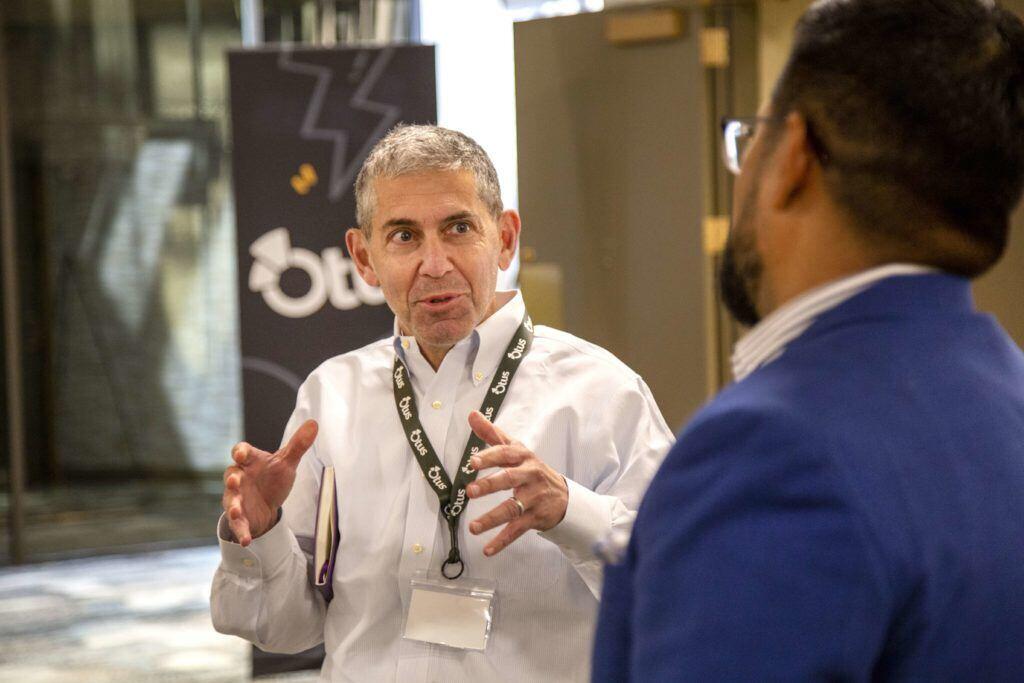
Interview Transcript
Kendell (00:00)
Can you introduce yourself and your role?
Matt Olson (00:03)
Yeah. So I'm Matt Olson. I'm the assistant Superintendent at Northwest Education Services, which is an intermediate school district, and we service a five-county region around the Grand Traverse Bay area.
Kendell (00:17)
Nice to meet you, Matt. So tell me a little bit about your Otus journey thus far and what brought you here to this conversation with me.
Matt Olson (00:28)
We really have come to understand, I think, as a whole field, the critical importance of being data-driven over, I would say, the last couple of decades at various places. But really, in order to be data-driven, you have to have systems in order to really be able to get at good data that's happening in the classroom, and it has to be accessible to the administrators and the teachers and the people that need to get at it. Really, that's what led us to Otus. We've had attempts prior to Otus that were not very successful, and so we felt like we got a really good partnership with Otus. We were able to work just hand in hand with a really quality rollout. We know it's a quality product that's user-friendly, and Otus has just been a really great partner in trying to work through the various challenges and barriers as they inevitably come up, rolling out something this complex to a region of this size. And so just be really happy with how it's gone and how we continue to work together.
Otus has just been a really great partner in trying to work through the various challenges and barriers as they inevitably come up, rolling out something this complex to a region of this size.
Kendell (01:42)
That's great. I know I heard you say a partnership in rolling out Otus across the region, talk to me more about how many people were looking at there in terms of the scope of implementation within Northwest Education Services.
Matt Olson (01:54)
Sure. So we have a five-county region. We're primarily very rural, but we're centered around Traverse City is our kind of semi-urban space, and we service across five counties. We have 16 school districts and service over 24,000 students in various public schools, nonpublic and charter schools. The challenge, of course, is there's such variation. We literally have run the gamut from a single one-room schoolhouse district that's K-8 with just over 40 kids, to Traverse City Public Schools, which is around 10,000 students, and everything in between. So with such varying needs and such varying challenges, again, it's really important to have a system that's adaptable, that can get us what we need for vastly different types of circumstances.
So with such varying needs and such varying challenges, again, it's really important to have a system that's adaptable, that can get us what we need for vastly different types of circumstances.
Kendell (02:52)
That's great to hear in the scope of the implementation is definitely large. So I can understand needing a partnership in that. Is there anything specific you can pinpoint in regards to how Otus has acted as a partner to the rollout and implementation that's been different from what you've experienced with other platforms in the past?
Matt Olson (03:09)
Well, the biggest thing I would say a couple of things. First off, just the accessibility of both the Otus leadership as well as the technical staff has been really remarkable. We know that we can pick up a phone and get answers literally instantly, which is just an amazing gift to be able to have. And we've had great experiences where we're recording this. Of course, all of these Otus staff have just deployed into this region for a broad-based training where we build it actually, as staff can kind of choose their own adventure. It's what kinds of aspects of the system that they need to focus on what's going to be most helpful for them in their context because, of course, you know, Otus has a lot of tendrils into the school. The database piece is the data mining, and the data warehousing is probably the base why we went with Otus in the first place. But the learning management system aspect of Otus, the ability to house standards-based assessments and really be adaptable as an in-classroom, part of how just instruction is delivered is really exciting, and I think it's taking us in directions.
Matt Olson (04:37)
When we first even got it, I don't know that we fully appreciated kind of the various aspects that it could potentially serve us.
First off, just the accessibility of both the Otus leadership as well as the technical staff has been really remarkable. We know that we can pick up a phone and get answers literally instantly, which is just an amazing gift to be able to have.
Kendell (04:47)
Thank you for sharing that. In thinking about that initial goal with the data warehouse and Otus, one of the things we find is that sometimes accessing the data leads to conversations and questions that you may not have anticipated. Have you heard any local conversations or questions triggered through the data that teachers now have access to as a result of the Otus implementation?
Matt Olson (05:09)
So I think that's the exciting part of what's starting to happen. In order for that to happen, you have to have systems and places where those conversations can happen. But the neat thing is once that data is available, what I think we're starting to find is people are hungry for that ability to do what you just described. And so what it's also forcing us to do in a good way is think about how do we shift our systems to allow for that work to happen. How are we making sure that there are times and places where teachers can sit down with this data and actually reflect on their work and get to a place where they're making improvements on the fly? So I would say that that's a place where we're growing. I think we've got a long way to go, but I think we're on the right path.
Kendell (06:09)
Absolutely, in knowing that the district has expanded or some of the districts have expanded into using Otus assessments to measure and capture that learning in the classroom. Have you heard or seen any impact on the actual students that are using Otus as a result of that?
Matt Olson (06:27)
Yeah, I think particularly as everyone did, we got a really hard what's the word I'm looking for here? Initiation into the world through the pandemic. So Otus was something that some of our districts went maybe a little faster into that realm of using it at that time because we needed a virtual solution. But in terms of what are we seeing again, I think I would defer to similar to what I just said. I think we're seeing the beginnings of students being able to really leverage the system as well, and teachers, of course, leveraging the systems for their students. There's a lot of power there, and are we seeing results? I'm hesitant to say, oh, yes, it's made all the difference yet. I think that would be premature because student achievement is ultimately a lagging indicator. But what I have seen and what we have seen collectively in the region is just an overall shift in practice that is very promising around how teachers are interacting with kids in the classroom, how they're really trying to get at what happens when students aren't learning what it is we're trying to get them to learn.
what we have seen collectively in the region is just an overall shift in practice that is very promising around how teachers are interacting with kids in the classroom
Matt Olson (07:46)
How do we adjust? In order to do that you have to have the tools to know what's happening. You have to be able to assess formatively. Otus gives us the strength and tools to do that.
Kendell (07:55)
Very well said. In thinking about that practice and knowing that we're having this conversation at the end of the school year, what initiatives do you see at the forefront of the upcoming school year? It doesn't have to be Otus specific, but what are you all working on in this region as you look to the future?
Matt Olson (08:10)
So what we're really finding is our teachers are working hard. They worked so hard more now than ever, and they're looking for tools to improve achievement, and you can't improve by doing the same thing with what we've always done. So I think the main thing that we're looking to get into next year is how do we ensure, first of all, that our tier-one instruction, we're very steeped in MTSS in our state and our region. Are we making sure that our tier-one instruction is where it needs to be? And oftentimes, if we look at the data, that's an area of improvement for us. So in terms of how do we improve tier-one instruction? A lot of that is around becoming more standards literate and more standards focused and ensuring that we've got alignment with our assessments and our instruction along with those standards. So I think really trying to delve into are we utilizing and leveraging all the resources that we have to ensure that our instruction is well lined to those standards, but it really is around instructional design and instructional delivery. So I think our focus is, again, on our standards literacy, data literacy, and ultimately, how does that inform classroom practice?
Kendell (09:41)
Great. I did hear you say teachers selecting the right tools and especially on the Otus end of things. We obviously love when teachers use our tools. But have you had any experience working with teachers or have drawn any conclusions around what it is tangibly that teachers are looking for in a tool that makes it stick because we know schools have so many tools. Is there anything that you've seen over time that keeps those teachers going back? But it's not just another tool on the list that we're just not using.
Matt Olson (10:12)
Yeah, for sure. It's really easy to have that shiny new thing that just goes on the shelf, right?
Kendell (10:18)
Yeah.
Matt Olson (10:18)
I think that teachers, primarily from my conversations with them over time, have been pretty consistent in what makes it cool, quality one is there's some level of investment in it. The teachers are not if they're just handed something that is purported to be the next best thing and it's a canned program that they have no particular investment in. I think it's hard at that point to expect anyone to say, well, I'm going to jump in with this full board with both feet. There needs to be some level of investment where they've had the ability to vet it, and there's been some explanation and understanding of why it's a good tool. They need to understand the "why" and be invested in that. And secondly, it's got to be user-friendly. Teachers have a really hard job. I know we say that. I don't mean that in a way that is condescending or it really is true. They have limited time. They have a tremendous level of responsibility. Anything we can do to clear out barriers and make it simpler and easier, not because they can't handle something complex. They absolutely can. It just comes down to resources and time.
They need to understand the "why" and be invested in that. And secondly, it's got to be user-friendly.
Matt Olson (11:39)
So the user interface has to be clean, it has to be good, has to be something that they can use that is not going to require a lot of extra effort. Then there's a much better chance that's going to really make the jump from an interesting kind of concept that could be useful to something I can't live without.
Kendell (12:01)
Former educator here. Absolutely agree. Thank you. Because that is so important. And I think that's often where from a leadership perspective, sometimes things fall short, is that helping to set and understand where teachers are at, what they need, and it's not condescending. It's not "I can't do this" or "I won't do this", it's just what do you need to best do your job and finding those areas and then a platform that supports that is beyond important appreciate hearing that in the leadership.
Matt Olson (12:30)
Efficiency and excellence do not have to be diametrically opposed. I think that they can work together.
Efficiency and excellence do not have to be diametrically opposed. I think that they can work together.
Kendell (12:35)
Absolutely. What makes Northwest Education Services such a great place to be?
Matt Olson (12:40)
It is a great place to work, and our region is phenomenal. I think there's a lot of things that make it a great place to be, not least of which I may be biased, but I think we live and work in one of the most beautiful places on the planet. But when it comes to our work in the field, we're a very collaborative and open organization. I think NYC. I don't mean literally northwest education services only. I mean our entire region. Our teachers really seem to enjoy and seek working with one another, which is not always easy in this day and age, but I think we really work to try to make that happen. Our leadership is really good about working together. All of us are stronger than any of us trying to. I think that dynamic of working together is really awesome and I think that we're really on the same page when it comes to being mission-driven and really being here for the right reasons. We're here for kids and I know that can feel very cliche, but I feel like here it's very authentic.
Kendell (13:56)
We feel that as guests in your community here. This is probably my 7th time working with educators in this region. Somewhere around there like I'm keeping count, but it feels that way every time we come out here and that's what makes it special to us and it's a testament to what's going on here today. All these educators working together, having those conversations, asking all those questions because we want those questions. That's the authentic experience that we crave to make sure that an implementation is successful so that shines through. Absolutely.
Matt Olson (14:27)
I'm glad to hear that. That's what we're going for.
Kendell (14:30)
Well, thanks so much for chatting with me and sharing more about your Otus journey. What you've all are doing here in Traverse City because you are doing amazing things. I do appreciate you.
Related Resources
Request a demo!
See exactly how Otus can help your school accelerate student growth and improve student outcomes – all while saving educators time.
